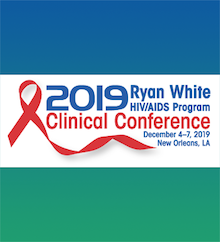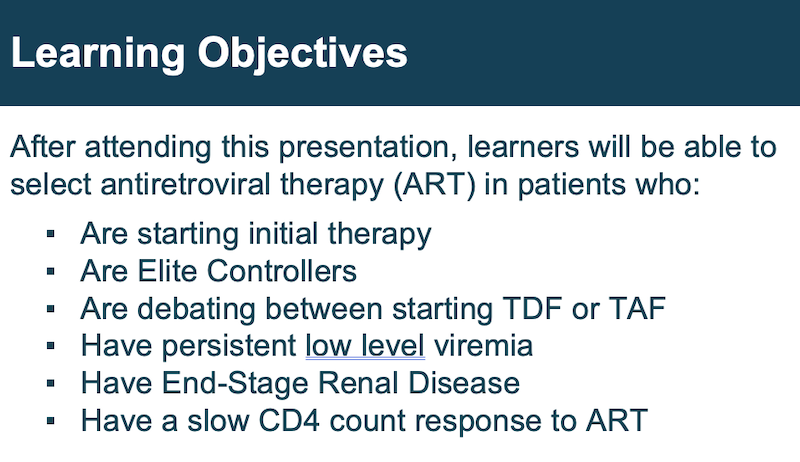
These times call for virtual learning. This blog presents 2019 Ryan White Clinical Conference sessions on SPECIAL POPULATIONS AND CONDITIONS:
- Antiretroviral Therapy and Pregnancy in 2019: Current Recommendations and Controversies
- Treating HIV in 2019: Interactive Cases From the Clinic(ians)
- Best Practices in HIV Care: Providing Gender-Affirming Care for Transgender and Nonbinary People
- Opioid Use and Substance Use Disorders
Antiretroviral Therapy and Pregnancy in 2019: Current Recommendations and Controversies
"We are getting close to being able to say that we have eliminated [HIV] perinatal transmission," said presenter Jean R. Anderson, MD, whose talk covered the current state of perinatal transmission of HIV infection, the latest ART recommendations for pregnant women and those considering pregnancy, and recommendations for PrEP in pregnancy and breastfeeding. Anderson used three Audience Response Questions (ARQs), a favorite learning tool at the Clinical Conference, to frame her overview and analysis.
Treating HIV in 2019: Interactive Cases From the Clinic(ians) and Panel Discussion
This session reviewed case scenarios for selection of ART for patients under variable scenarios: starting initial therapy, for "Elite Controllers" (long term asymptomatic), starting TDF versus TAF, in situations of low level viremia, cases with End Stage Renal Disease, and a slow DC4 count response to ART. See the slides on the IAS-USA website (no video)

Best Practices in HIV Care: Providing Gender-Affirming Care for Transgender and Nonbinary People
This talk provided an overview of data on transgender individuals (e.g., national estimates, socioeconomic variables, discrimination and health care experience survey results) as well as HIV surveillance data and insights on care engagement in the context of gender-affirming care. The presentation also summarizes what a clinical site can do to create and implement a gender affirming care model.
Opioid Use and Substance Use Disorders
From 1999 to 2017, how many people in the U.S. have died from a drug overdose? 150,000? 250,000? More? This was the first ARQ in this presentation, which focused on opioids and methamphetamines. On each, the talk reviewed the reasons for addiction, clinical approaches (e.g., screening for all) and treatment options: for opioids (methadone, buprenorphine, naltrexone) and methamphetamine (lack of pharmacological agents with demonstrated efficacy and behavioral therapies including motivational interviewing and cognitive behavioral therapy). The ARQ answer, by the way? Over 700,000.